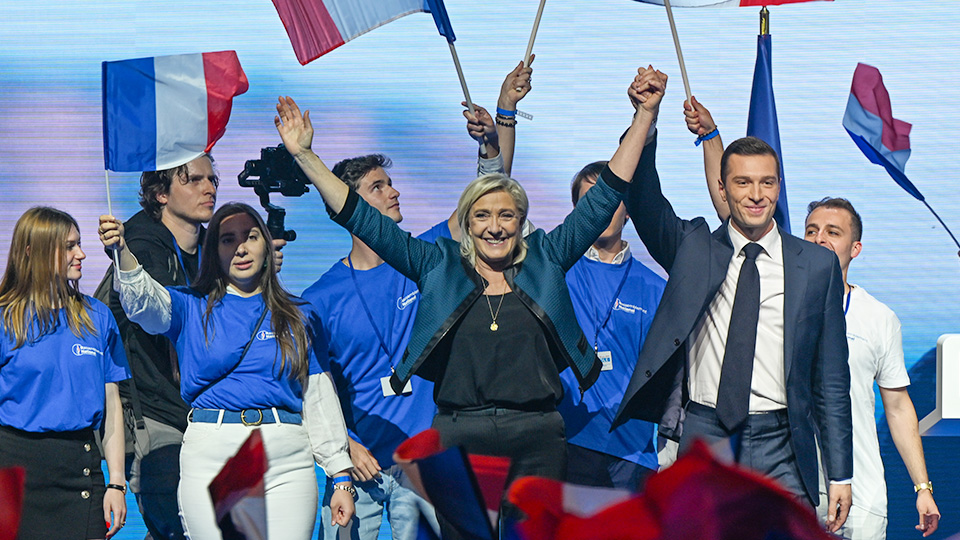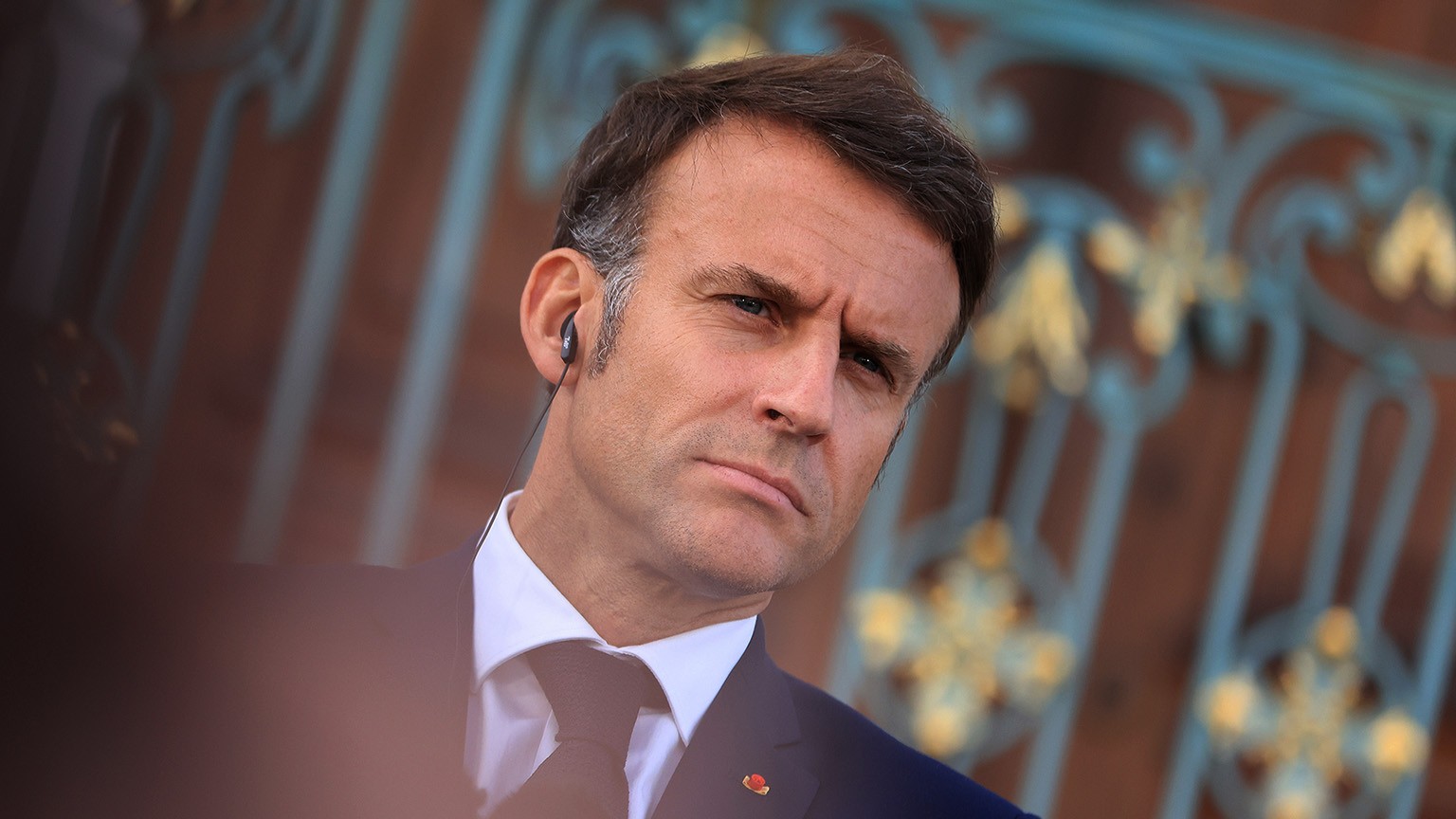Far-right rising
Big gains by the far-right National Rally party in France prompted President Emmanuel Macron to call a new election for the nation's own parliament. Early results of the EU parliament vote showed National Rally is expected to secure more than twice as many seats as Macron's pro-European coalition. As the early results were coming in, the president called national elections to begin this month.
France's National Rally opposes advancing European integration within the European Union.
Macron said in a televised address that the rise of nationalists and what he called demagogues are dangers for France and also for Europe.
He said he would give people the opportunity to decide France's future through the vote.
In the 720-seat European Parliament, parties skeptical of the EU are projected to increase their combined number of seats to around 130.
The far-right Alternative for Germany is also projected to increase EU parliament seats to about 14.
Still, three major parliamentary groups of pro-European center-right and center-left parties are likely to maintain a majority. But EU-skeptic forces are poised to increase their influence as their opponents' power wanes.
Macron called for snap legislative elections
France's President Emmanuel Macron has announced a snap election for the national legislature after his party's projected defeat in the European Parliament elections. French media have called the move his "biggest gamble."
In a hastily arranged televised speech on Sunday, Macron revealed his decision to dissolve the National Assembly for an election late this month.
This came after the French far-right National Rally party was projected to have won more than twice as many seats in the European Parliament as Macron's centrist coalition.
The EU vote took place from Thursday to Sunday.
In his speech, Macron expressed a sense of urgency about the advancement of the far-right party. He went on to express his confidence in "the ability of the French people to make the right choice for themselves and for future generations."
Observers say Macron apparently hopes that a victory in the national parliament election will curb the far-right party's clout.
But French media point to a risk that National Rally and other parties could gain more seats and form a majority in the lower house.
Le Pen: 'We're ready to exercise power'

Marine Le Pen of France's far-right National Rally party on Sunday welcomed President Emmanuel Macron's decision to hold parliamentary elections. In a speech to supporters, she said, "We're ready to exercise power if the French people place their trust in us in future legislative elections. We're ready to turn the country around, ready to defend the interests of the French, ready to put an end to mass immigration, ready to make the purchasing power of the French a priority."
She continued to say, "This great victory for patriotic movements is in line with the direction of history, which is seeing the return of nations and protections around the world." She added, "It closes this painful globalist parenthesis that has caused so much suffering to people around the world."
Analysis: Macron's 'gamble'
NHK asked European politics expert and chief economist at Dai-ichi Life Research Institute Tanaka Osamu to share his thoughts on the vote.

Q: What is behind the increase in right and far-right parties' seats in the European Parliament election?
Tanaka Osamu: There are two major reasons.
One is social concerns caused by a large influx of immigrants. The other is frustration with inflation.
In particular, regarding immigrants, the government has been tightening regulations so far, but people feel that it is not enough, as seen in calls for tougher policies.
Q: In France, President Emmanuel Macron has decided to dissolve parliament for a snap election. What prompted that decision?
A: The background is basically the same as in the EU, but there is also a backlash against Macron, who has been pushing forward with reforms since he took office.
Before the election, Marine Le Pen of the National Rally said that the vote would be a referendum on Macron.
The result was clear. Macron may have thought if the government continued to ignore the results, it would weaken the power of his administration even further. But calling an election is a risky gamble.
I think Macron has two expectations.
One is that he could benefit from a sense of crisis that the prime minister could be elected from a far-right party.
I think he also expects the election system to be on his side.
If a runoff is held in each electoral district, voters who are wary of the far-right are expected to join the opposing candidates.
Q: What will happen in the French election and the EU in the future?
A: The European Parliament election in France this time had the character of a vote of confidence in Macron.
It is tantamount to a no-confidence motion against the president by the French people.
In that sense, it is unclear how far Macron's expectation for the election will be realized.
If the National Rally becomes the leading party with the current momentum, Macron may have to choose the prime minister from a far-right party.
If that happens, France, a major member of the EU, will have a big impact on the EU's policies.
Stricter immigration policies will be required, and measures against climate change will be slowed down to a certain extent.
